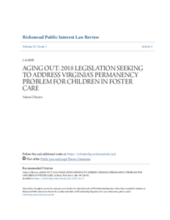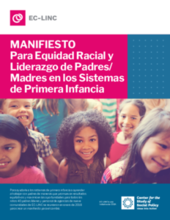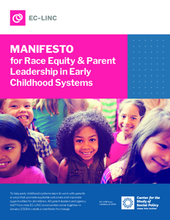Displaying 1091 - 1100 of 2221
In this piece for the Chronicle of Social Change, Vivek Sankaran - director of the Child Advocacy Law Clinic and the Child Welfare Appellate Clinic at the University Michigan Law School - describes how the US federal government has quietly introduced a momentous new funding source for child welfare systems, which Sankaran believes offers an opportunity for states to remake their child welfare systems.
This study sought to distinguish youth in the child welfare system who became involved with the justice system from youth who did not become involved with the justice system based on the youth's protective factors and their caregivers' parenting skills.
This analysis examines both historical and contemporary approaches to addressing religion and race in child welfare policy and practice, with a particular focus on adolescent youth.
This article by staff attorney for family law and child welfare at the Virginia Poverty Law Center's Center for Family Advocacy, Valerie L’Herrou, outlines and analyses several new bills introduced by the Virginia General Assembly in 2018 and their impacts on young people aging out of the foster care system and family reintegration.
This chapter of the Routledge Handbook of Critical Social Work, written by David Tobis, examines an inspiring story of dramatic change in New York’s child welfare system and how parents whose children were in foster care contributed to those changes. It demonstrates how grassroots activism can be suggestive for critical social work.
The aim of this study was to investigate how workers within Child Protective Services (CPS) systems in Colorado and the Netherlands measure and perceive the effectiveness of their CPS system.
This study explored the personal self-care practices of foster parents in one southeastern state in the US.
In this piece for the Chronicle of Social Change, Vivek Sankaran - director of the Child Advocacy Law Clinic and the Child Welfare Appellate Clinic at the University Michigan Law School - describes a recent invitation from the US federal government to make funding available to states, permitting "uncapped, matching federal child welfare funds under Title IV-E of the Social Security Act to support the representation of parents and children in the child welfare system."
Para ayudarle a los sistemas de primera infancia en los E.E.U.U. a aprender a trabajar con padres de maneras que promuevan resultados equitativos y maximicen las oportunidades para todos los niños 40 padres líderes y personal de agencias de nueve comunidades de Early Childhood Learning and Innovation Network for Communities (EC-LINC) se reunieron en enero de 2018 para crear un manifiesto para el cambio.
To help early childhood systems in the U.S. learn to work with parents in ways that promote equitable outcomes and maximize opportunities for all children, 40 parent leaders and agency staff from nine Early Childhood Learning and Innovation Network for Communities (EC-LINC) communities came together in January 2018 to create a manifesto for change.



